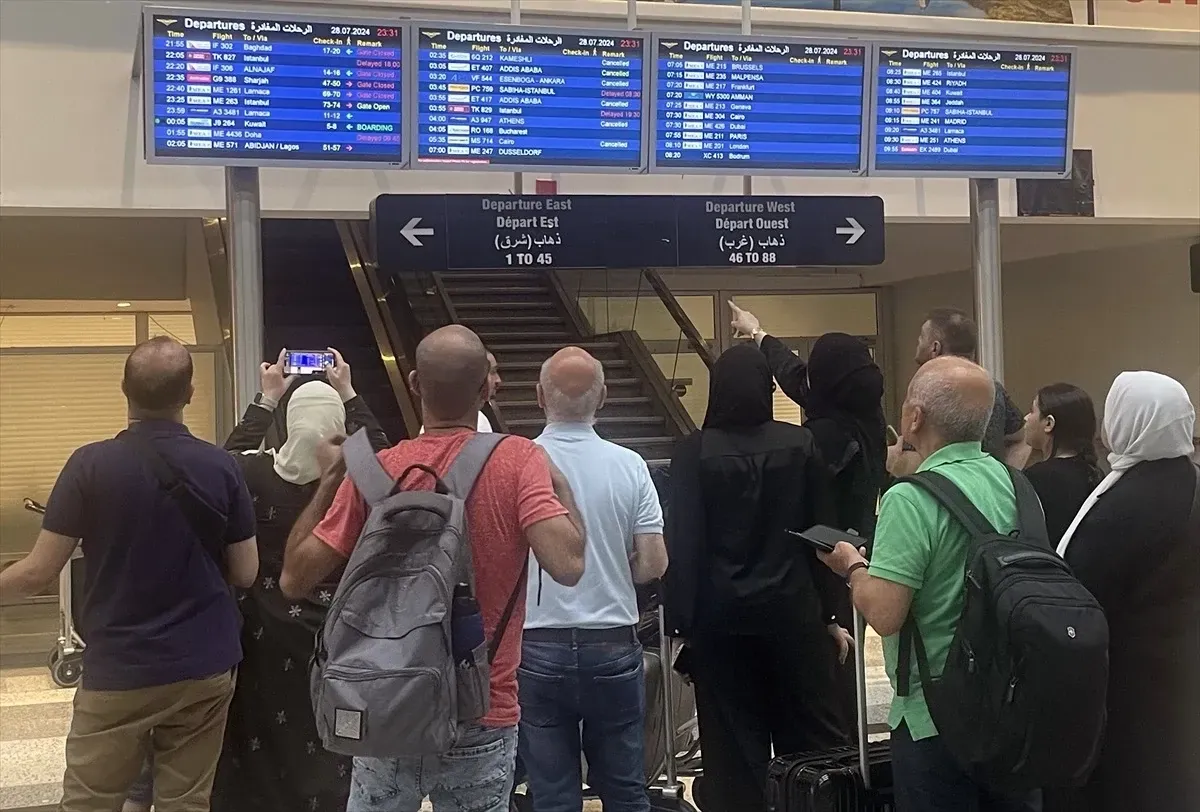On July 29, 2024, Beirut-Rafic Hariri International Airport, Lebanon's sole international airport, experienced significant flight disruptions due to escalating tensions between Israel and Hezbollah. The situation unfolded following a rocket strike in the Israeli-occupied Golan Heights on July 27, resulting in the deaths of 12 children and teenagers.
In response to the heightened security concerns, several major airlines have taken precautionary measures. The Lufthansa Group, including Lufthansa, Swiss, and Eurowings, announced the suspension of their flights to and from Beirut until August 5, 2024. This decision reflects the growing unease in the region, with the German airline giant already having suspended night-time flights to the Lebanese capital throughout July.
Other carriers, such as Turkish Airlines, SunExpress, AJet, Aegean Airlines, Ethiopian Air, and Lebanon's national flag carrier Middle East Airlines (MEA), have also cancelled or delayed their scheduled flights to Beirut on July 29. MEA cited "technical reasons related to the distribution of insurance risks" as the cause for their service disruptions.
The recent escalation traces back to the deadly attack in the Golan Heights, a territory disputed between Israel and Syria since 1967. While Hezbollah has denied responsibility for the strike, it marks the most severe incident in the region since the Hamas assault on October 7, 2023, which occurred 9 months and 22 days ago and sparked the ongoing Gaza conflict.
In response to the attack, Israel's security cabinet convened on July 28, authorizing the government to take action. This development has raised concerns about the potential for a full-scale war between Israel and the Iran-backed Hezbollah, reminiscent of their last major conflict in 2006, 18 years ago.
The current situation is part of a broader pattern of tensions in the region. Cross-border exchanges between Hezbollah and the Israeli military have intensified since the beginning of the Gaza war. These hostilities have not only affected air travel but have also disrupted shipping across the Middle East, as evidenced by the reciprocal drone and missile attacks between Israel and Iran in April 2024.
"The UNDOF remains committed to maintaining the ceasefire between Israel and Syria in the Golan Heights, despite the recent escalation of tensions in the region."
The ongoing Israeli-Lebanese conflict, which dates back to 1948, has seen periods of both relative calm and intense fighting. Lebanon's complex political system, based on confessionalism, adds another layer of intricacy to the regional dynamics.
As the situation continues to evolve, the international community watches closely, hoping for a de-escalation of tensions to prevent further disruptions to civilian life and regional stability.
